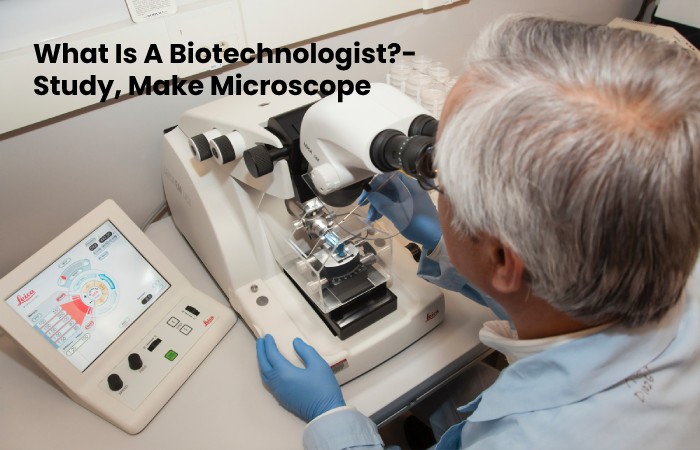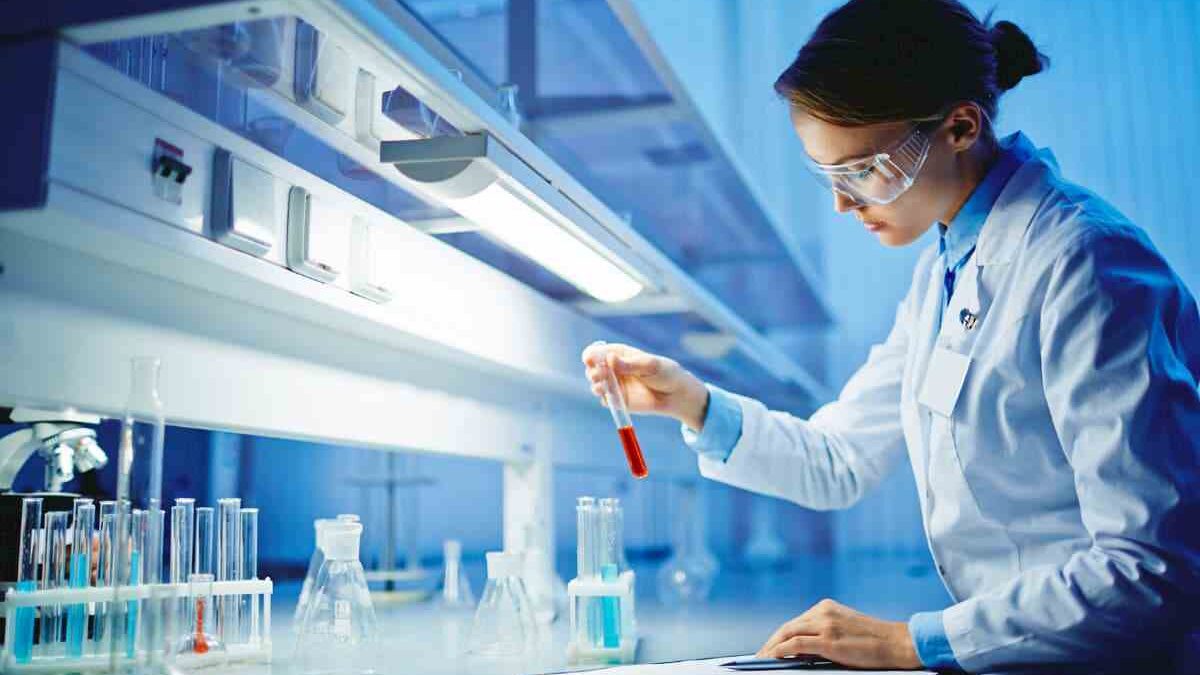A biotechnologist makes basic microscopy to identify areas of interest for check by a pathologist. A biotechnologist is someone who specializes in preparing tissue samples for examination.

Table of Contents
Biotechnologist Must Know How To Recognize Several Diseases And Conditions.
To become a biotechnologist, individuals typically earn a bachelor’s degree in science, supplemented by additional training in microscopy, tissue manipulation, and related subjects. In some regions, a biotechnologist requirement to be licensed by a government agency or professional organization. It may be likely to apply for a job in a laboratory after finishing school in other areas. People who view history as a career often belong to professional organizations so they can keep up with developments in the field, and may attend conferences, subscribe to journals, and participate in other enrichment actions.
Biotechnologist Study In Preparing Various Types Of Tissue Samples For Examination.
The critical aspect of a biotechnologist job is preparing samples for examination and preserving them. What may freeze, dry, or perform other processes to prepare samples for review, fix and stain slides and set up microscopes? About biotechnologist also perform basic microscopy to identify areas of interest for examination by a pathologist. Other job responsibilities may include writing results, organizing stored samples, maintaining protocol to keep the lab safe and clean, and maintaining lab equipment.
A Biotechnologist May Make Microscope Slides Using Body Tissue Collected By Doctors From Ill Patients.
In some cases, a biotechnologist must be bright to work underweight. For example, a surgeon may take an operation during surgery. Waiting for pathology results to decide what to do in surgery, or a biotechnologist may be part of a team responding to a disease outbreak, in which case would have to. So move quickly to keep information current and relevant to other team members.
Biotechnologist May Work In A Pathology Laboratory.
The working conditions of a biotechnologist can vary—many hours required on their feet. A biotechnologist is also routinely exposed to infectious and potentially dangerous material, especially in high-security laboratories handling unknown or dangerous disease samples. Therefore, hours are often very regular. As laboratories have specific operating hours. A high degree of precision and coordination must work successfully in a laboratory environment and have a team attitude to keep the laboratory running smoothly. And encourage cooperation.
At the end of their training, the Higher University Biotechnologist and Embalmer Technician will be able to perform the following comprehensive professional skills:
- Tissue Processing: Process cytological and histopathological samples based on basic knowledge of anatomy, histology, biochemistry, and physiology. As well as the skillful application of tissue blocking, cutting, and staining techniques. In addition to demonstrating attitudes such as discipline, systematicity, responsibility, hygiene and safety, to provide reliable tissue slides that can be analyzed and interpreted by the pathologist.
- Execution of staining techniques: Development of special staining and immunohistochemical techniques in tissues. In cytology samples to incorporate knowledge of applied biochemistry essential histology. And also That allow you to perform acid-base reaction or antibody-antigen stains with molecular effect on the tissues. To provide slides that facilitate the pathologist’s work and give more accuracy to the diagnosis of various diseases.
- Conservation of corpses: The conservation of corpses is achieve through. The basic knowledge of anatomy, histology, biochemistry and physiology to recognize organs and structures. Incorporating conservation methods through liquids or biochemical substances. To incorporate corpses that serve in legal investigations scientific as well as in health institutions.
- Entrepreneurship: Entrepreneurship is to start a business through knowledge of processing cytological and histopathological samples. And also conservation of corpses, the disintegration of corpses, execution of staining techniques. Can individually or jointly undertake a company applying the knowledge acquired is a micro-entrepreneur.
The University Biotechnologist and Embalmer Technician will have. The ability to perform efficiently and with quality in the assistance of the forensic doctor and pathologist’. And also acting the necropsies that are carry out on human corpses, for the administration of justice or in laboratories. In addition. Because of a hospital’s pathology. Within medical research, forming part of a multidisciplinary work team for tissue processing, behaving ethically. With a high sense of commitment to environmental conservation, applying ICTs and self-learning.

